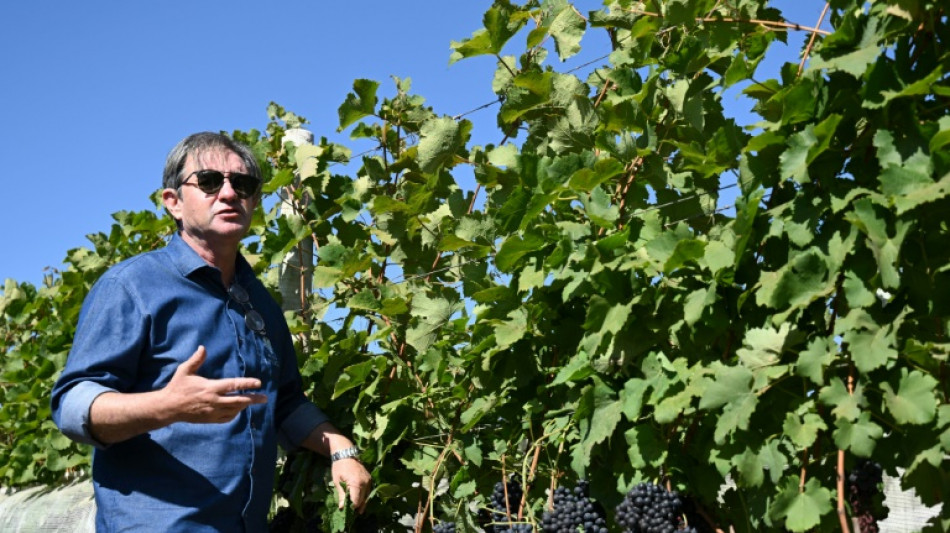
-
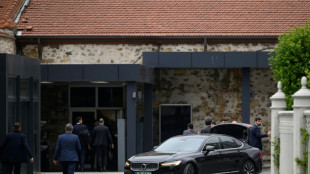 Russia, Ukraine hold first talks since 2022
Russia, Ukraine hold first talks since 2022
-
APEC says 'concerned' over challenges to global trade
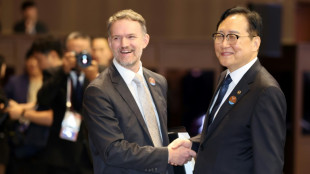
-
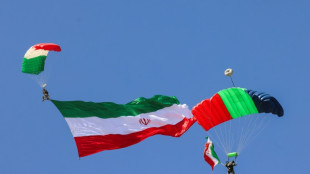 Iran, European powers hold nuclear talks in Turkey
Iran, European powers hold nuclear talks in Turkey
-
More Hollywood stars join protest letter over Gaza 'genocide'

-
 France star Dupont invests in American rugby
France star Dupont invests in American rugby
-
India asks IMF to reconsider Pakistan programme over 'terror funding'
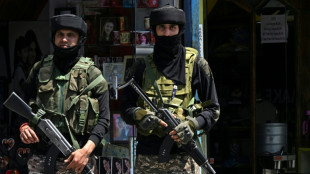
-
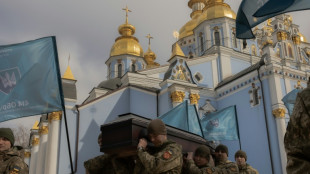 Russia, Ukraine to meet for first talks since 2022
Russia, Ukraine to meet for first talks since 2022
-
Trump says many in Gaza are 'starving'
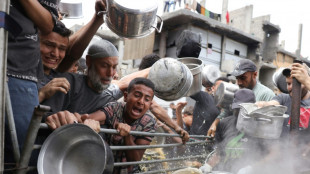
-
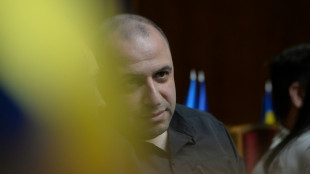 Umerov: 'Wonder' dealmaker from Crimea leading Ukraine peace talks
Umerov: 'Wonder' dealmaker from Crimea leading Ukraine peace talks
-
Australia's Starc opts out of return to IPL: reports

-
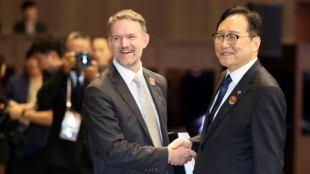 APEC says 'concerned' over challanges to global trade
APEC says 'concerned' over challanges to global trade
-
Coach Chaabani wishes Berkane were not CAF Cup final favourites
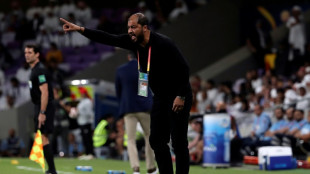
-
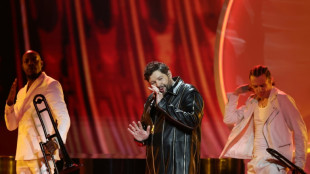 Eurovision in numbers
Eurovision in numbers
-
Eurovision comes full circle, showing changing times
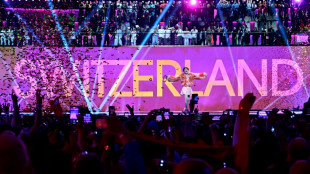
-
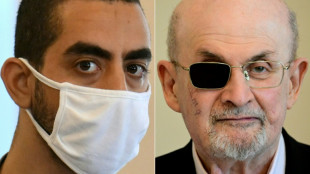 Salman Rushdie attacker faces sentencing
Salman Rushdie attacker faces sentencing
-
Influencer's murder shows dark side of Mexican social media fame
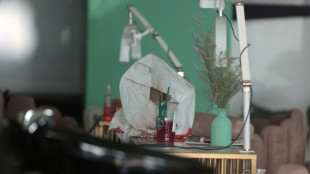
-
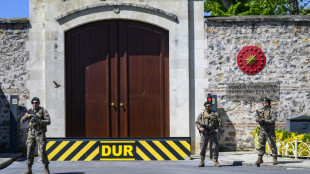 Russia and Ukraine to meet in Istanbul, but expectations low
Russia and Ukraine to meet in Istanbul, but expectations low
-
'He's killing us': Cannes dealmakers hate Trump's big Hollywood idea

-
 Last Champions League place, relegation to be decided in Ligue 1 finale
Last Champions League place, relegation to be decided in Ligue 1 finale
-
De Bruyne seeks fitting Man City farewell in FA Cup final

-
 Crystal Palace go for glory as Man City seek salvation in FA Cup final
Crystal Palace go for glory as Man City seek salvation in FA Cup final
-
Napoli's first match point as Scudetto race reaches climax
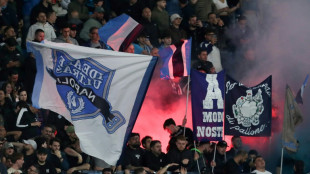
-
 Dortmund hope to take 'final step' in unlikely top-four rescue act
Dortmund hope to take 'final step' in unlikely top-four rescue act
-
Raisuqe death to 'motivate' Castres in Top 14 season run-in

-
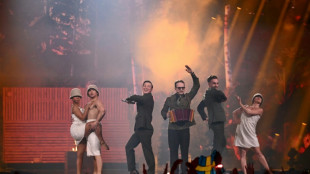 Eurovision favourite KAJ shines spotlight on Finland's Swedish- speaking minority
Eurovision favourite KAJ shines spotlight on Finland's Swedish- speaking minority
-
'Serious problem': Afghan capital losing race against water shortages
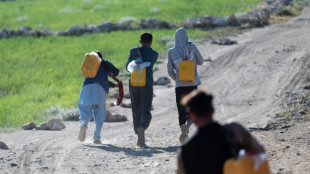
-
 Jokic, Strawther star as Nuggets down Thunder to tie series
Jokic, Strawther star as Nuggets down Thunder to tie series
-
Buttler to leave extended IPL early for England duty
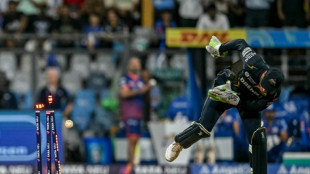
-
 Asian markets stagger into weekend as trade rally runs out of legs
Asian markets stagger into weekend as trade rally runs out of legs
-
US singer Chris Brown charged with assault in Britain

-
 YouTube star MrBeast upsets Mexican officials with temple videos
YouTube star MrBeast upsets Mexican officials with temple videos
-
Take-Two earnings boost delayed along with 'GTA VI'

-
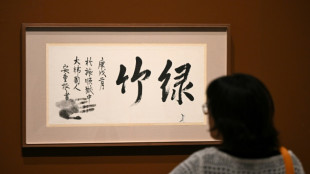 Independence hero assassin's calligraphy breaking auction records in Seoul
Independence hero assassin's calligraphy breaking auction records in Seoul
-
Trump caps Gulf tour in Abu Dhabi with dizzying investment pledges
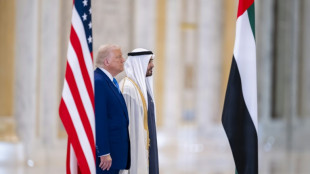
-
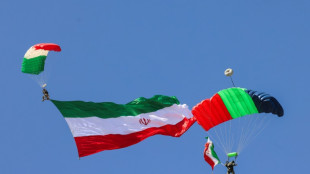 Iran, European powers to hold nuclear talks in Turkey
Iran, European powers to hold nuclear talks in Turkey
-
Opposition leader vows 'empty' polling stations for Venezuelan legislative vote
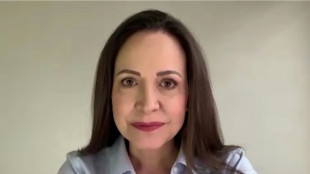
-
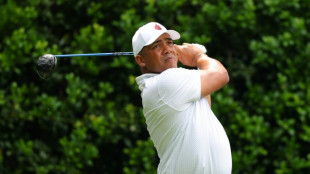 Venezuelan Vegas birdies five of last six to grab PGA lead
Venezuelan Vegas birdies five of last six to grab PGA lead
-
Nose cone glitch wipes Australian rocket launch
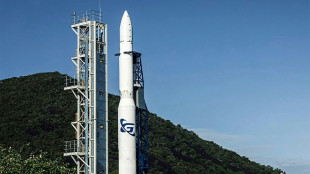
-
 Curry 'excited' by Warriors future despite playoff exit
Curry 'excited' by Warriors future despite playoff exit
-
Snipp Interactive Reports Financial Results for Q4 And Fiscal 2024, Announces Conference Call on May 20, 2025, And Management Changes

-
 EIA Evaluation Process for the Penco Module Advances to Next Phase
EIA Evaluation Process for the Penco Module Advances to Next Phase
-
Abrams Towing Wins 2025 Consumer Choice Award for Towing Services in Toronto Central

-
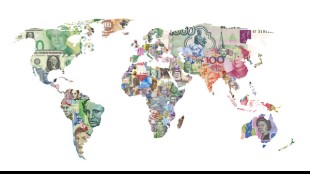 Pestend Pest Control Wins 2025 Consumer Choice Award for Pest Control in Toronto Central
Pestend Pest Control Wins 2025 Consumer Choice Award for Pest Control in Toronto Central
-
ATA Creativity Global Reports Q1 2025 Financial Results

-
 NanoViricides, Inc. Has Filed its Quarterly Report: Broad-Spectrum Antiviral NV-387 To Combat MPox Pandemic in Africa - Phase II Clinical Trial Update, Also Readying to Combat Measles Outbreaks, and to Tackle Bird Flu
NanoViricides, Inc. Has Filed its Quarterly Report: Broad-Spectrum Antiviral NV-387 To Combat MPox Pandemic in Africa - Phase II Clinical Trial Update, Also Readying to Combat Measles Outbreaks, and to Tackle Bird Flu
-
Formation Metals Advances 2025 Drilling Program with ATI Application for N2 Property

-
 US cops investigating Smokey Robinson after sex assault lawsuit
US cops investigating Smokey Robinson after sex assault lawsuit
-
Fresh woes for Brazil football as federation boss dismissed
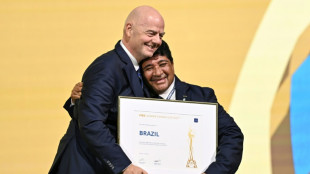
-
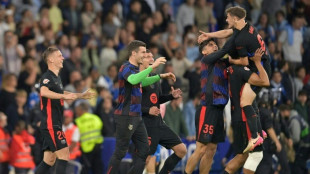 'Unique' Barca family key to title triumph: Flick
'Unique' Barca family key to title triumph: Flick
-
Sinner demolishes Ruud as Gauff battles into Italian Open final
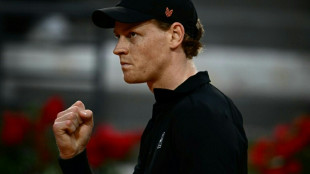

Wine from Brazil's unsung savannah makes a splash
The tropical savannah around Brazil's ultra-modernist capital is not exactly known as wine country, but French enologist Jean-Michel Barcelo gushes as he plucks a ruby-red grape and pops it in his mouth.
"This terroir has real potential," says the 52-year-old wine consultant, who is in the high plateau of central Brazil making his annual visit to Villa Triacca, a vineyard located a 50-minute drive from the sweeping white buildings of the seat of power in Brasilia.
With its predominantly tropical climate, Brazil is far less known for wine than fellow South American producers Argentina and Chile -- never mind France.
But a new production technique developed by Brazilian researchers in the 2000s has helped winemakers in the Brasilia region hack the local climate to harvest in the winter, producing better-quality grapes -- and wines that are starting to make a splash.
"The technique they're using here is different from what you see anywhere else in the world," says Barcelo, a silver-haired Frenchman who takes his wine very seriously.
He lavishes praise on the freshness and complexity of Brazilian highlands wines, and the "exceptional" conditions at Villa Triacca: an altitude of 1,000 meters (3,280 feet) above sea level, a dry climate and a difference of up to 15 degrees Celsius between daytime and nighttime temperatures in winter -- perfect for ripening grapes.
Visitors on a wine tasting at the vineyard are also impressed.
"I was surprised by the quality," says Luciano Weber, a 45-year-old Brasilia resident.
"I had no idea they were making something so good here."
- Unusual technique -
But it was not an obvious choice to grow grapes in central-western Brazil, the heart of the country's powerful soybean, corn and beef industries.
The key is a technique called "double pruning," in which producers prune their vines twice a year, once in winter and once in summer.
That enables them to push their grape-picking season back from autumn, the usual time -- when the region's heavy rains would threaten the harvest -- to July and August, the heart of winter in the southern hemisphere.
The technique also involves using a synthetic hormone that regulates the vines' growth and keep them dormant so the grapes will be ready at the right time.
Producers say the hormone leaves no trace in the final product.
But some wine lovers are dubious.
"We don't know what the effects are. I've never seen a study on it," says Suzana Barelli, resident wine expert at newspaper Estado de Sao Paulo.
Still, she is impressed by the region's wines, praising their "very high quality."
- Dream come true -
The Brasilia region, known as the Federal District (DF), has just 10 vineyards, all opened in recent years.
But the industry is growing.
Farmland devoted to wine production leapt from 45 hectares (111 acres) in 2018 to 88 (217) last year.
Ronaldo Triacca, owner of the namesake vineyard, launched it six years ago.
"I had always dreamed of making wine, but I thought I could only make table wine -- until I learned about inverted pruning," says the 57-year-old farmer, sitting amid his prized vines, his denim shirt rolled up at the sleeves.
"That's when I realized it was possible to make high-quality wine."
He started planting grapes -- Syrah, Cabernet Sauvignon and Cabernet Franc -- on six hectares of land, alongside his existing corn and soy fields.
Now, he sells 15,000 bottles a year, and is part of a collective of regional producers called Vinicola Brasilia.
For now, most of their production is sold to specialty stores and restaurants in the capital.
But they are starting to get noticed.
"A lot of people still think if a wine isn't Argentine, Portuguese or French, it's no good," says Felipe Camargo of regional agricultural agency Emater.
"We're going to change that fast."
L.Harper--AMWN
